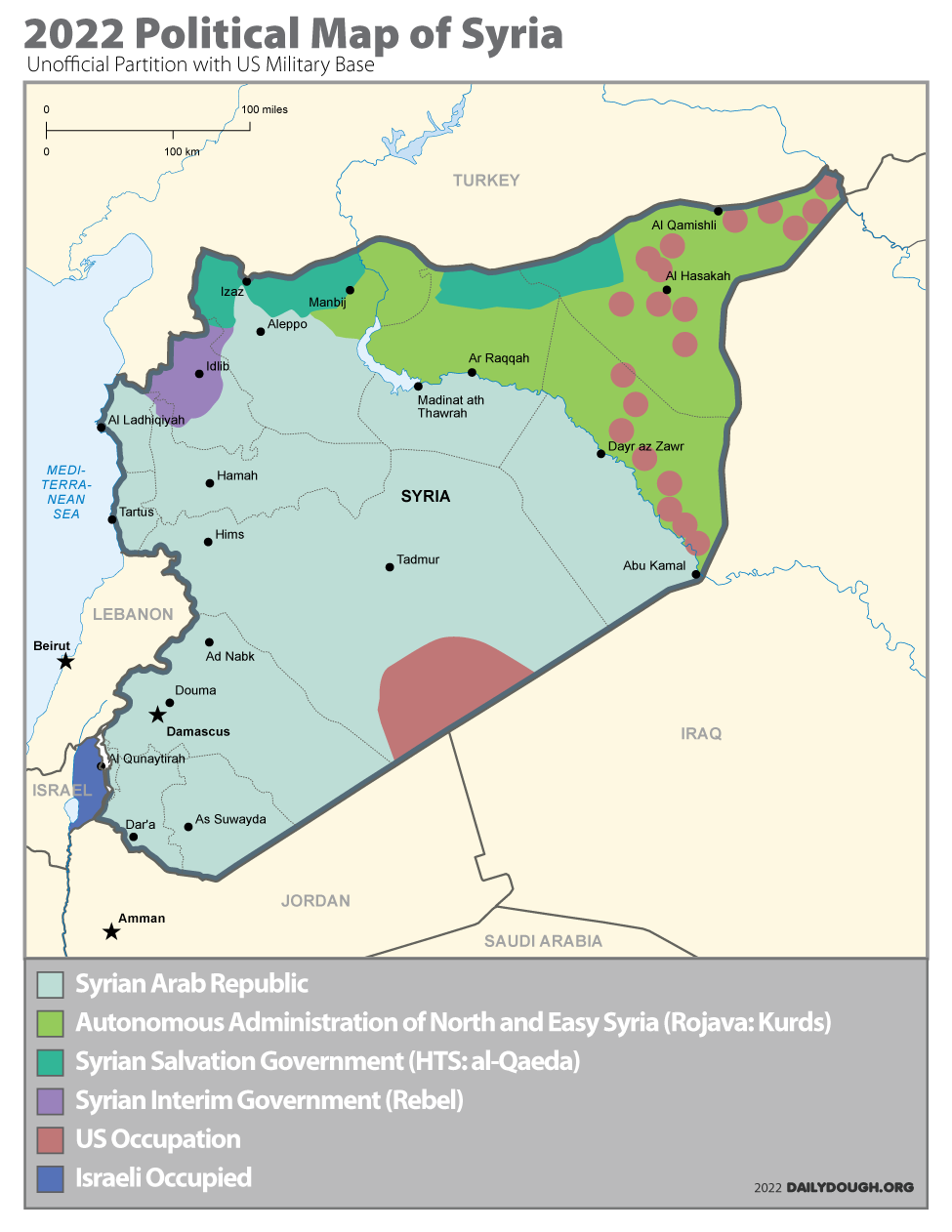U.S. Troops Stationed In Syria - The History Of Why
- dailydoughforum

- Jul 31, 2022
- 2 min read
Updated: Aug 5, 2022

The United States stationed troops in Syria in the northeast, where the U.S. is backing the Kurdish forces against the Syrian Government, and in the southeast, where there are different rebel forces against the Syrian Government. But this whole situation is very complex, so let's go back in history to WWI, where this all began.
History
After WWI, the French and the British agreed to split the Middle East into different nations. There were many nations whose borders were drawn during this time, like Israel, Lebanon, and even Kurdistan. We'll focus on the Kurds and Kurdistan. The French wanted much of the Middle East to be under their influence, and in response, the British also wanted influence in the Middle East, resulting in the borders they drew cutting through Kurdistan.
In Turkey, their borders had gained much of Kurdistan. However, until the 1990s, the Kurdish people were generally oppressed by the Turkish Government (i.e., ban on the Kurdish language, media, books, etc.), leading to the PKK (Kurdistan Workers' Party) being formed in response. In addition, the PKK had violently fought against the Turkish military, leading to nearly 40,000 deaths.
Syria has a large Kurdish population in the northeast, the largest ethnic minority in Syria. In addition, Syria is run by a president named Bashar al-Assad, and in 2011, there were many protests against him across Syria during the Arab Spring. As protests raged on throughout the Arab nation, people were reportedly being shot by security and Assad's armies. Nevertheless, people continued to protest against Assad's use of violence.
People were protesting, but not initially for Assad to stand down. Instead, they hoped the young leader would listen to their requests to stop using security forces to kill protestors. Still, killings were continuously reported, only increasing the protests and anti-Assad sentiment.
In July 2011, the Syrian Civil War began. The Free Syrian Army defected from the Syrian army and sheltered in Turkey. Since then, more rebel groups have sprung out, like the People's Protection Units, Islamic State, Al-Qaeda, Syrian Democratic Forces, and the previously mentioned PKK entering Syria to fight for the freedom of Kurds in Syria. The United States currently backs most Kurdish rebel groups, while Russia and Iran back the Syrian Government, Russia joining at the request of Assad.
Present
Currently, the United States is stationed in northeast Syria, where Kurdish rebel forces are occupied. Some reports claim that America is smuggling oil from their bases in Syria to Iraq. The Cradle claims that the United States is also taking wheat and sending it to Iraq. Polygraph says that the claims of the U.S. stealing oil is false. But these are all claims. Some argue that the United States is illegally stationed in Syria and is illegally taking oil because they have no permission to do so from the Syrian Government.

There is much debate among many as to whether or not the United States's actions are against international law, so one must research the history and story of the situation first.
We await further news.




Comments